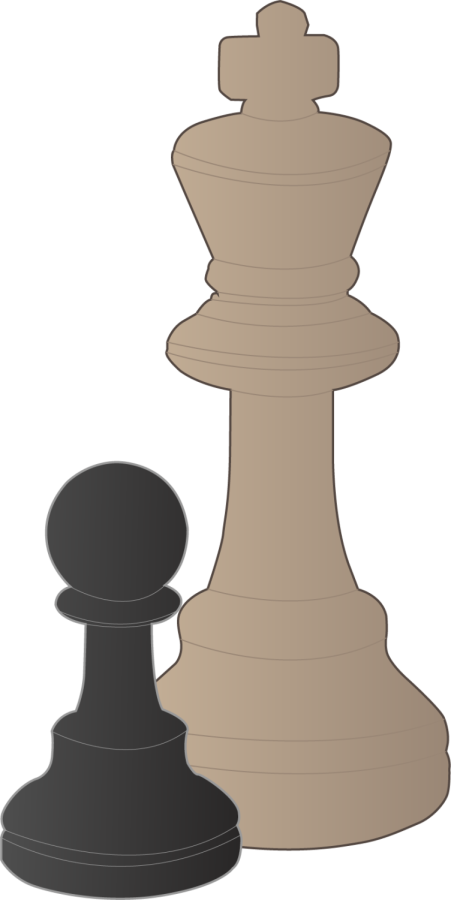Alleged chess cheating scandal splits internet
October 28, 2022
If you have used social media in the past few weeks, there is a fair chance that you have seen mention of the “largest cheating scandal in chess history” or theories about how one could/does cheat at such a high level. What many do not understand is the context behind this and how this event has disrupted the chess community.
It all started with the 2022 Sinquefield Cup – a prestigious competition between a handful of the very best chess players, and the final event in the year’s Grand Chess Tour. Hans Niemann, a 19-year-old American Grandmaster, beat Norwegian GM Magnus Carlsen, the highest-rated player of all time, while using black, which is often seen as a disadvantage.
The next day, Carlsen withdrew from the tournament and Tweeted: “I’ve always enjoyed playing in the @STLchessclub, and hope to be back in the future.”
Alongside his Tweet, he posted a video of a soccer coach saying, “If I speak I am in big trouble. Big, big trouble.”
This was immediately taken as Carlsen accusing Niemann of cheating, and thousands of people began looking for ways that Niemann could have cheated.
How cheating works in chess:
- ‘Unbeatable’ chess engines exist, and the best ones cannot be beaten by humans
- At the skill level that Grandmasters play on, one or two moves by these engines is enough to give a completely winning advantage
- In the past, people in the crowd might signal with their hands, or stand somewhere in the room, but now as technology has progressed, there is the possibility of tiny devices signaling/telling them the correct moves
- Many may have seen or spread the (joke) theory of vibrating beads, placed somewhere where security does not check, that would use some form of non-verbal communication to tell the cheater the best move.
Addressing the accusations, Niemann posted a video in which he admitted he had cheated twice in his life: once when he was 12 years old and four years later, when he was 16 years old. He claimed it was a “ridiculous mistake” and something that he regrets.
“I have never ever in my life cheated in an over-the-board game, or in online tournaments, or if they were unrated games,” Niemann said.
It was not long before Chess.com – the largest online chess website – banned Niemann, releasing a statement asserting he had cheated more than he admitted.
“We have shared detailed evidence with him concerning our decision, including information that contradicts his statements regarding the amount and seriousness of his cheating on Chess.com.”
However, the owner of Chess.com, Danny Rensch, wanted to give Niemann a chance.
“We have invited Hans to provide an explanation and response with the hope of finding a resolution where Hans can again participate on Chess.com.”
For a while, the chess world was left in limbo, waiting for another statement, interview, or proof of cheating. A few weeks later, we got more action – just not what we had hoped for. At the Julius Baer Cup, Carlsen once again faced Niemann. After making only one move, Carlsen resigned. The uproar that followed was unlike anything the chess world had seen before. People wanted answers, and they demanded them now. The chess world got something pretty quickly – an interview with none other than Carlsen himself. While he did his best to avoid directly stating anything incriminating, Carlsen hinted at a few things.
“I am very impressed by Niemann’s play and I think his mentor, Maxim Dlugy, must be doing a great job,” Carlsen said. Carlsen name-dropped Niemann’s controversial mentor, who has admitted to cheating in the past.
Carlsen declined to comment when he was asked if he was accusing Niemann of cheating. This could be an effort to avoid legal trouble but may mean that Carlsen is not entirely sure one way or another. However, Carlsen did claim that he wants to say more, and likely will after the tournaments are over.
So how big of a problem is cheating in chess?
“Regardless of whether it’s a massive problem or not, I think it is fairly easy to cheat,” Carlsen said. “And in the future it should not be taken lightly, neither online or over the board.”
Carlsen also commented on Niemann’s demeanor in the original game – how effortless and relaxed he seemed to be, while also looking around and acting bored.
Despite saying so little, Carlsen gave a lot of food for thought. It is still very clear that he is suspicious of Niemann, and name-dropping the coach is likely not unintentional – especially when so many eyes are on him and he knows that everything he says will be taken very seriously.
This brings us to where we are at today: We either have a giant cheating scandal and must rethink anti-cheating measures in chess or the chess community is ruining the reputation and potentially the mental health of a 19 year old who did nothing wrong.
While it is reasonable to be suspicious of somebody who has cheated in the past and who beat the highest-rated player of all time using black, jumping to the conclusion that Niemann cheated is not only unfair but potentially damaging. The truth is, until more details are released, the world has no way of knowing.
All information is as of press time.


